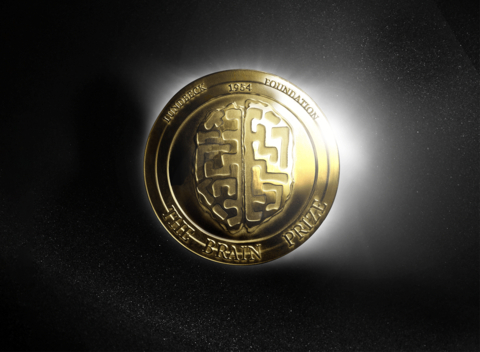COPENHAGEN, Denmark--(BUSINESS WIRE)--The Lundbeck Foundation has announced the recipients of The Brain Prize 2024, the world’s largest award for outstanding contributions to neuroscience. This year’s award recognizes the pioneering work of three leading neuroscientists – Professor Larry Abbott at Columbia University (USA), Professor Terrence Sejnowski at the Salk Institute (USA), and Professor Haim Sompolinsky at Harvard University (USA) and the Hebrew University (Israel).
Theoretical and computational neuroscience permeates neuroscience today and is of increasingly growing importance. The winners of The Brain Prize 2024 have made pioneering contributions to these scientific areas by uncovering some of the principles that govern the brain’s structure, function, and the emergence of cognition and behaviour.
The Brain Prize 2024 worth DKK 10 million (€1.3 million) is awarded to:
Larry Abbott (USA), Terrence Sejnowski (USA), and Haim Sompolinsky (Israel/USA) for their Foundational work in Computational and Theoretical Neuroscience.
Chair of The Brain Prize Selection Committee, Professor Richard Morris, explains the reasoning behind this year’s award:
“It is inconceivable to imagine modern brain sciences without the concomitant development of computational and theoretical neuroscience. The three scientists have applied novel and sophisticated approaches from physics, mathematics, and statistics to study the brain. They have developed vital tools for the analysis of highly complex datasets acquired by modern day experimental neuroscientists.
The three prize winners have also proposed conceptual frameworks for understanding some of the brain’s most fundamental processes such as learning, memory, perception and how the brain generates maps of the external world. They have also provided crucial new insights into what may go awry in several devastating disorders of the nervous system, such as epilepsy, Alzheimer’s disease, and schizophrenia. In addition, their scientific achievements have paved the way for the development of brain-inspired artificial intelligence, one of the emerging and transformational technologies of our time.”
On behalf of the Lundbeck Foundation, CEO Lene Skole extends her warmest congratulations to each of the three Brain Prize recipients:
“Their pioneering research has created trailblazing knowledge and paved the way for other scientists to better understand critical brain functions, also in relation to diseases. It aligns fully with our purpose of bringing discoveries to lives. Each of their scientific endeavours began in the 70’s, and their determination, courage and persistence over decades should serve as inspiration for other scientists, and indeed be rewarded.”
FACTS
The human brain consists of approximately 100 billion neurons connected by trillions of synaptic connections. Every function the brain performs relies on the flow of information through these staggeringly complex networks of neurons. A fundamental goal of neuroscience is to understand how these networks are wired together, and how the patterns of neural activity within them give rise to cognition and behaviour. The sheer complexity of the brain means that understanding its language requires theoretical and computational approaches.
Theoretical and computational neuroscience uses mathematics, computer science, theoretical analysis, and abstractions of the brain to understand the principles that govern its structure, how it processes information, generates behaviour, and gives rise to cognitive abilities as perception, imagination, intelligence, the formation of knowledge, memory, problem-solving, decision-making, and the production of language. The field has laid the foundations for the development of AI - one of the most revolutionary developments in modern science.
MORE INFO
Find out more – see the information pack of The Brain Prize 2024 >>
About The Brain Prize
The Brain Prize is the world’s largest neuroscience research prize, and it is awarded each year by the Lundbeck Foundation. The Brain Prize recognises highly original and influential advances in any area of brain research, from basic neuroscience to applied clinical research. Recipients of The Brain Prize may be of any nationality and work in any country in the world. Since it was first awarded in 2011, The Brain Prize has been awarded to 47 scientists from 10 ten different countries. The Brain Prize recipients are presented with their award by His Royal Highness, King Frederik of Denmark, at a ceremony in the Danish capital, Copenhagen.
About the Lundbeck Foundation
The Lundbeck Foundation is an enterprise foundation encompassing a comprehensive range of commercial and philanthropic activities – all united by its strong purpose; Bringing Discoveries to Lives. The Foundation is the long-term and engaged owner of several international healthcare and medtech companies – Lundbeck, Falck, ALK, Ellab, and Ferrosan Medical Devices – and an active investor in business, science and people through its commercial investments in the financial markets; in biotech companies based on Danish research and through philanthropic grants to science talents and programmes in Danish universities. The Foundation’s philanthropic grants amount to more than DKK 500m annually primarily focusing on the brain – including the world’s largest personal prize awarded in neuroscience, The Brain Prize.




